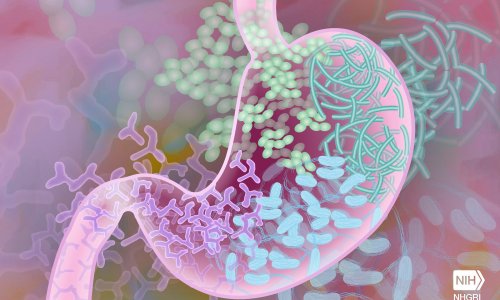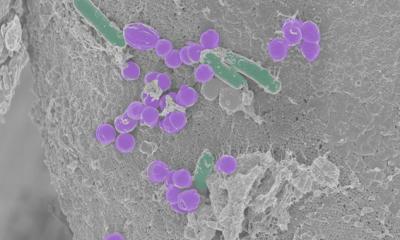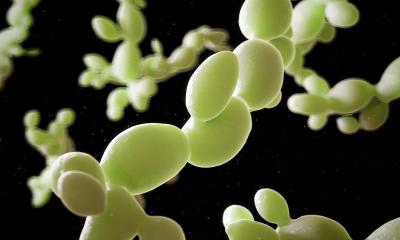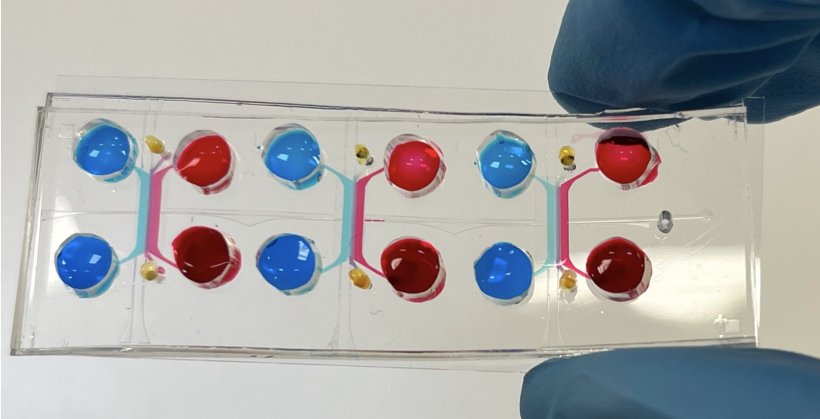
Image credit: Politecnico di Milano
News • A closer look at the GI microbiome
“Gut-on-a-chip” predicts immunotherapy efficacy against melanoma
A team of researchers from the European Institute of Oncology and the Politecnico di Milano, coordinated by Luigi Nezi, Team Leader of the Department of Experimental Oncology, European Institute of Oncology, and Marco Rasponi, Full Professor of the Department of Electronics, Informatics and Bioengineering, Politecnico di Milano, have developed a “gut-on-a-chip” (a miniature model of the human intestine on a chip-sized device) capable of reproducing the main features of intestinal inflammation and of predicting the response of melanoma patients to immunotherapy treatment.
The results have just been published on Nature Biomedical Engineering.
The interaction between microbiota and immunotherapy has long been known. It is the result of both systemic effects, i.e., the immune response elicited in the entire body by immunotherapy, and local processes, especially in the gut, where most of the bacteria that populate our body live. However, the latter can only be studied in animal models, with all their limitations. Indeed, there is no clinical reason to subject a patient receiving immunotherapy for melanoma to colonoscopy and colon biopsy. Yet intestinal inflammation is one of the main side effects of this treatment, often forcing the therapy to be discontinued.
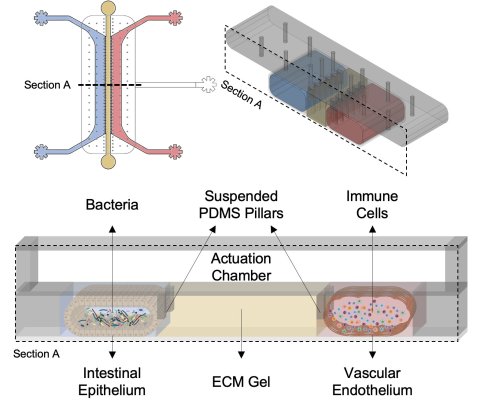
Image credit: Politecnico di Milano
Hence the researchers' idea to apply “organ-on-a-chip” technology to the colon with innovative details specifically designed to focus on the link between gut microbiota and immunotherapy. "The patented uBeat technology, owned by Politecnico di Milano, is the basis of our new gut-on-chip model. uBeat was originally developed to reproduce heart muscle contractions, and later extended to simulate biomechanical conditions of the knee joint. We have, instead, applied it to recreate the typical peristaltic bowel movement. The continuous movements generated by uBeat enable to differentiate major intestinal populations from human organoids, thus reproducing a highly realistic environment on a chip. The ability to drive such complex biological processes through engineering alone opens up very promising prospects, especially in the creation of humanised in vitro models intended to replace the use of animals in numerous fields,” says Marco Rasponi.
“We found that the microbiota of melanoma patients who do not respond to immunotherapy has pronounced pro-inflammatory characteristics, which damage the integrity of the gut’s epithelial barrier and promote the production of molecules that can regulate the immune system,” explains Mattia Ballerini, lead author of the study.
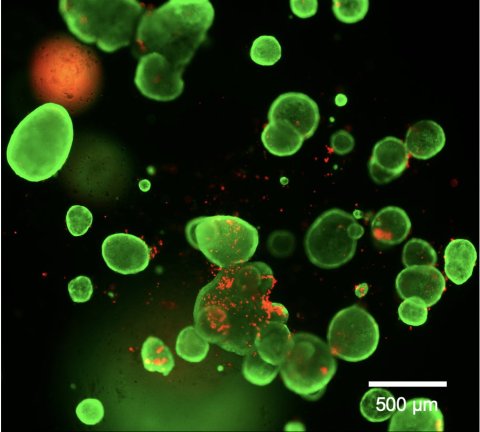
Image credit: Politecnico di Milano
"The idea of studying the influence of gut microbiota on the response to immunotherapy in melanoma patients stems from my studies in the USA. Now, the partnership with Politecnico di Milano has enabled us to create this new device in order conduct detailed studies on the molecular mechanisms through which the microbiota interact with the cells of the intestinal epithelium. These characteristics can be used in the clinical setting as markers to predict the response to immunotherapy, and to stratify patients, so that treatment can be administered only to those most likely to benefit by it. This would result in an important benefit in terms of quality of life for patients, with considerable savings for the National Health System. In addition, the use of our gut-on-chip may spare therapy-resistant patients the risk of unnecessary side effects, giving their oncologists the opportunity to administer any therapies that predispose them to a better response. To do this, we simply take a faecal sample and test its effects on our gut-on-chip. Finally, it must be said that we are using this system to study the molecular mechanisms involved in the response to immunotherapy in other cancers, where the benefits for patients are still marginal. Our aim is to thus generate new development opportunities for innovative therapies based on modulation of the gut microbiota, to provide an increasing number of patients with access to effective treatments,” says Luigi Nezi.
Source: Politecnico di Milano
17.02.2025



